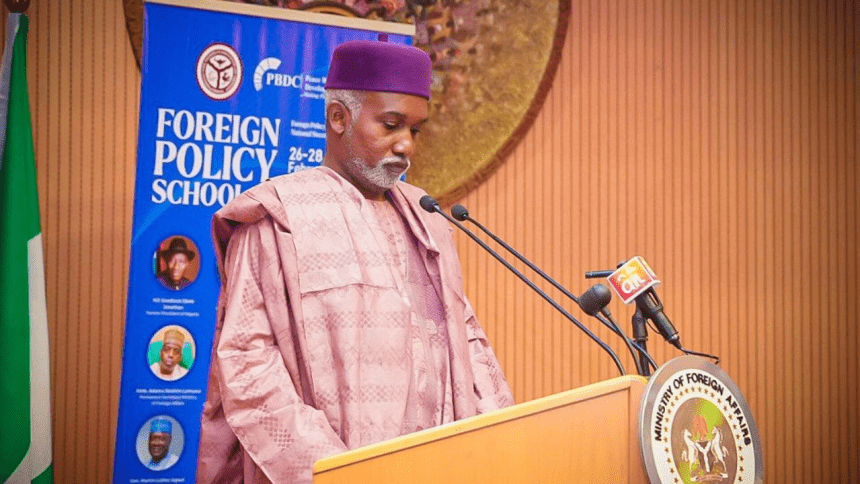The Nigerian government has put machinery in place to deepen renewable energy sources with the Nordic countries.
Nigeria’s Minister of Foreign Affairs, Yusuf Tuggar, engaged in high-level discussions on Tuesday with the Foreign Ministers of Sweden, Finland, and Iceland, as well as representatives from Norway and Denmark, towards achieving the laudable goal.
The discussion held in Abuja, also focused on taking the long-standing relationship between Nigeria and the Nordic countries, which dates back to Nigeria’s independence, to the next level.
Briefing journalists after the meeting, Tuggar emphasised the historical significance of the relationship, noting that Finland was among the first nations to recognise Nigeria as a republic.
Tuggar highlighted President Bola Tinubu’s recent launch of Compressed Natural Gas buses as part of a broader initiative to reduce reliance on imported petroleum products, praising the Nordic countries for their advancements in the cyclical economy and renewable technology.
The minister also outlined potential collaborations in research and development, noting the Nordic model of integrating university research with business and government support.
He pointed to Nigeria’s National Agency for Science, Engineering and Infrastructure, as a key player in the area.
Reference to solar energy and CNG initiatives was also recognised as key components of the initiative, to take Nigeria to a higher pedestal of development.
Tuggar brought attention to Nigeria’s Technical Aid Corps, an agency that has been deploying Nigerian professionals to Africa, the Caribbean and the Pacific, since 1987.
“This is one of Nigeria’s significant contributions to global development,” he said, stressing the country’s respected status on the international stage.
During the talks, Tuggar also confirmed that Nigeria had raised concerns about controversial Biafra agitator, Simon Ekpa with Finland.
Swedish Foreign Affairs Minister, Tobias Billström, who spoke on behalf of the Nordic delegation, underscored the longstanding and deep-rooted relationship between Nigeria and the Nordic countries, adding that Nigeria stands as one of the region’s largest trading partners in Africa.
He further highlighted Nigeria’s significant role on the global stage, particularly in promoting peace and stability within West Africa and in supporting international cooperation.
The adoption of Security Council Resolution 2719, which addresses Africa’s under-representation in the UN Security Council, was a key focus of the minister’s remarks.
He affirmed the Nordic countries’ support for expanding the Security Council to include more permanent and elected members, reflecting the growing importance of African countries in international politics.
Billström also addressed global challenges, particularly Russia’s ongoing war in Ukraine, which he said, threatens international peace and security.
He praised Nigeria’s clear and decisive stance in the UN General Assembly, defending international law and the principles of territorial integrity and sovereignty.
The visit, Billström emphasised, holds a special significance, as it reaffirms the strong partnership between Nigeria and the Nordic countries.
He highlighted that the collaboration spans various critical areas, including global and regional security, trade, investment, human rights, democracy, and combating climate change.
The delegation included the Minister for Foreign Affairs of Sweden, Tobias Billström; the Minister for Foreign Affairs of Finland, Ms. Elina Valtonen; the Minister for Foreign Affairs of Iceland, Ms. Thórdís Kolbrún Reykfjörd Gylfadóttir; the State Secretary for International Development, Norway, Bjørg Sandkjær; and the Under Secretary for Foreign Policy, Denmark, Eva Marie Frida Barløse.
The visit of the five Nordic ministers was the first of its kind outside of Europe.
(Editor: Ifeanyi Mark)








